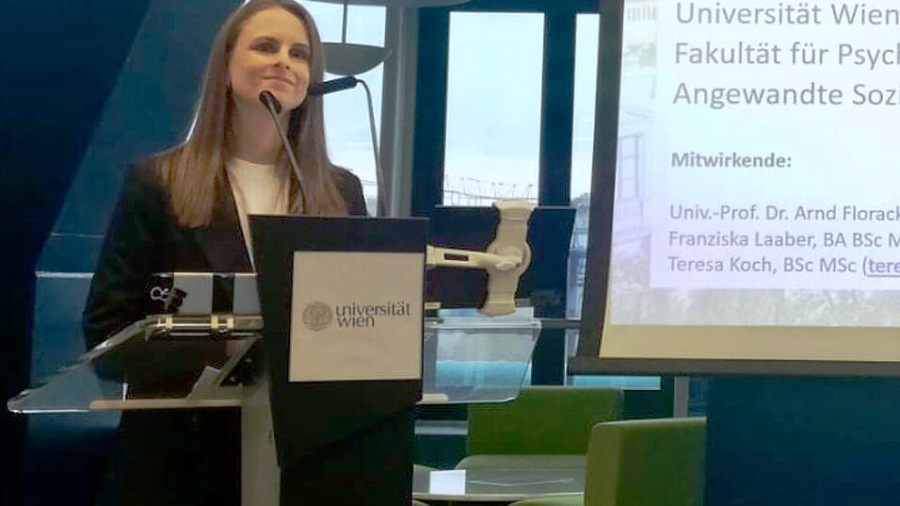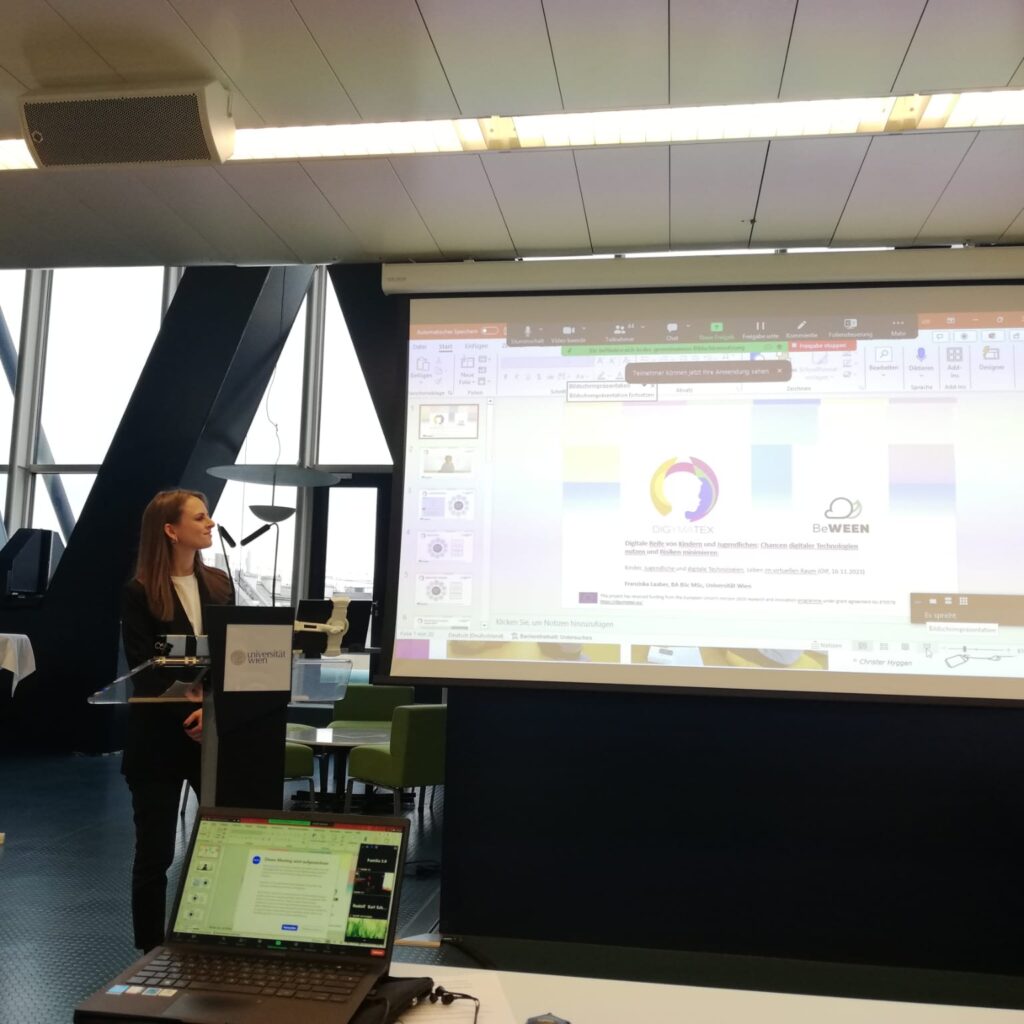The Digital Maturity Inventory (DIMI) developed by the EU-funded DIGYMATEX project was presented at the ”Children, young people and digital technologies: life in virtual space“ event hosted by the Austrian Institute for Family Studies, which took place on November 16th, 2023, in Vienna, Austria.
DIGYMATEX researcher Franziska Laaber from the University of Vienna introduced the attendees to the concept of young people’s digital maturity and provided an overview of project results of the partner project BeWEEN.
In her talk “Children and young people’s digital maturity: Harnessing the opportunities and reducing the risks of digital technologies”, she addressed the various components of digital maturity and the development of the concept, giving the audience an overview of the outcomes and predictors of digital maturity.
In her presentation, Laaber not only delved into insights on what it takes to use digital technologies in a positive way, but also emphasized that traditional screen time may not be the perfect indicator to determine whether children are using their devices optimally.
For example, a child could actively sit at a computer and learn how to code, or passively watch 7-second videos without much added value. Therefore, a central theme of her presentation was to reinforce the importance of using technology for both personal development and positive social interaction.
Understanding and managing the use of digital devices in a way that fosters healthy social development can be complex. Factors like algorithms designed to maximize user engagement or frequent online social comparisons can influence user behaviour and hinder autonomous, healthy digital media use.
Achieving a balance between harnessing the benefits of digital tools and mitigating potential negative impacts remains a key challenge in fostering a positive digital environment.
This is especially true at a time when rapid digital developments are constantly reshaping the digital landscape. Digital maturity offers a novel view on young people’s use of digital technologies and focuses on aspects of a self-determined and socially responsible technology use.
Findings from the DIGYMATEX project show a correlation between digital maturity and positive results in the use of digital media.
“A high level of digital maturity in children is associated with better grades, more prosocial behaviour, and better overall well-being,” Laaber concluded.
Another interesting finding of the DIGYMATEX project is the link between socioeconomic status and digital maturity. In a study led by DIGYMATEX researcher Teresa Koch from the University of Vienna with more than 1,000 parents and their children, they found that children from higher status families also have a higher level of digital maturity.
Interestingly, the parents seem to play a critical role in this relationship. Taking an active and supportive role in helping their children to use digital media seems to be particularly beneficial. However, not all parents are able to provide such active guidance. Hence, support for children from all social backgrounds in the use of digital technologies and the development of their digital maturity is crucial.
Laaber also presented a current study as part of the DIGYMATEX project, in which the value of digital and non-digital media and attention processes are analysed using eye tracking. Such experimental research will provide important information on whether digital maturity is also reflected in behaviour in real-life situations.


